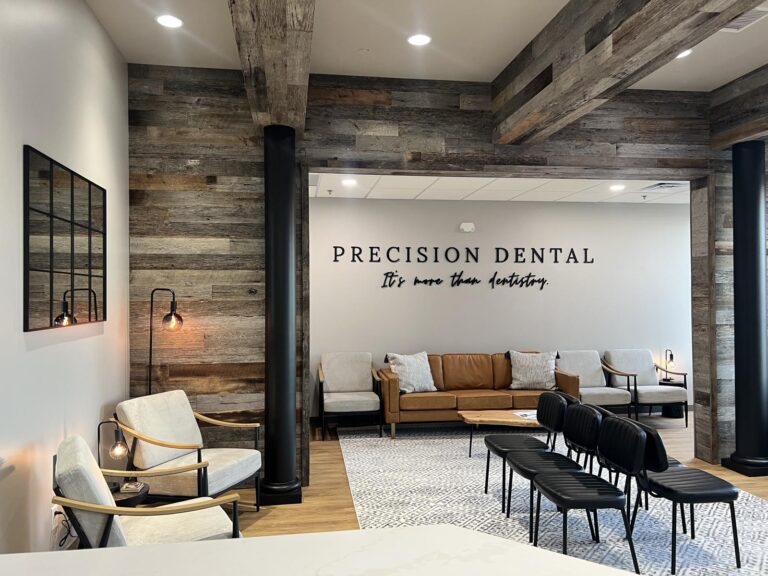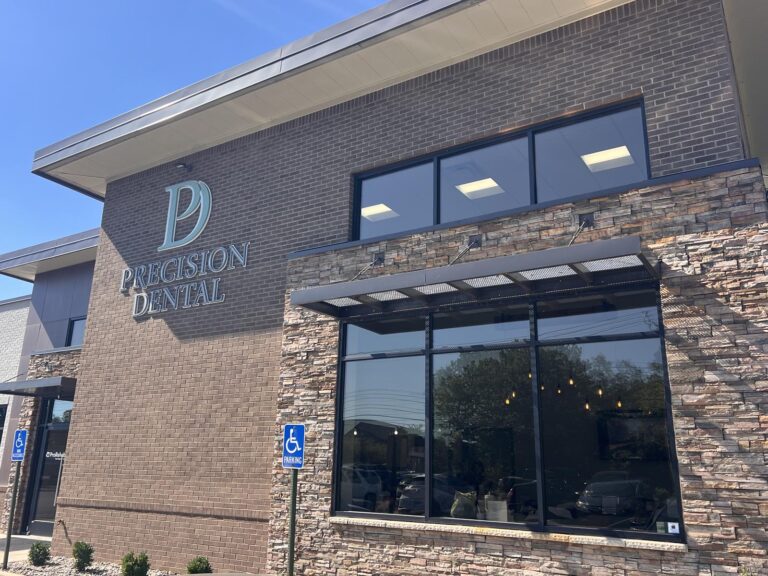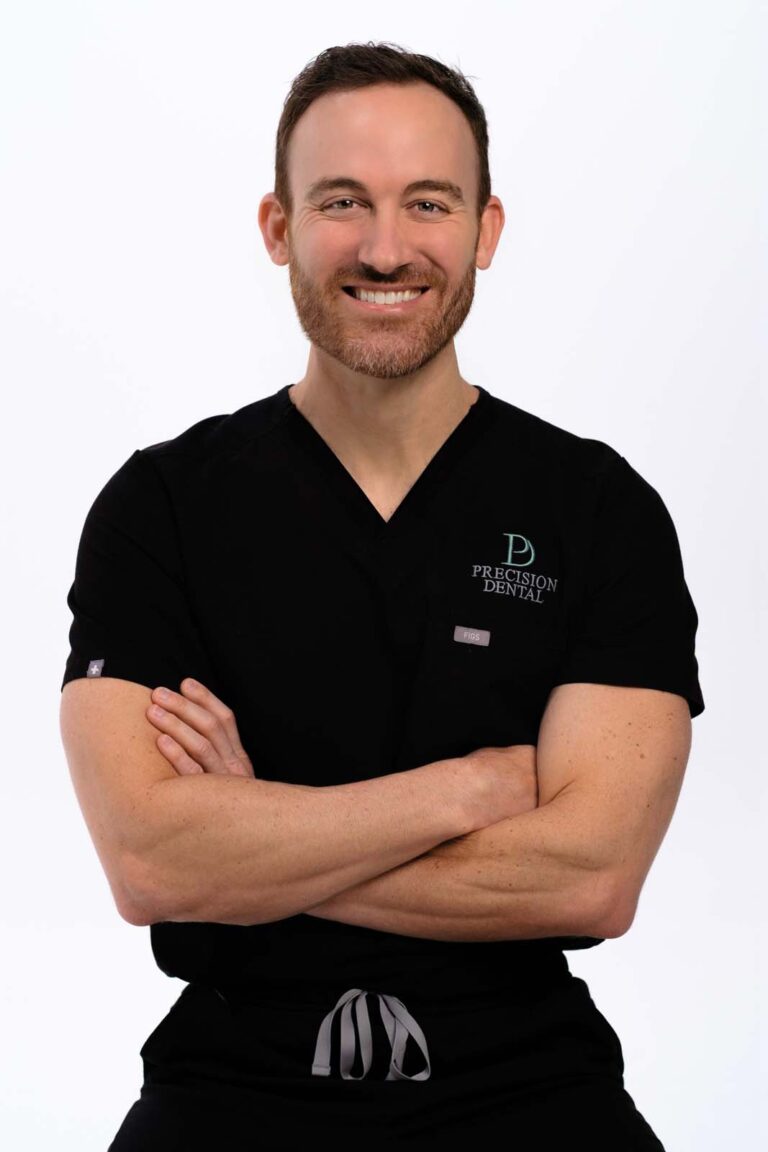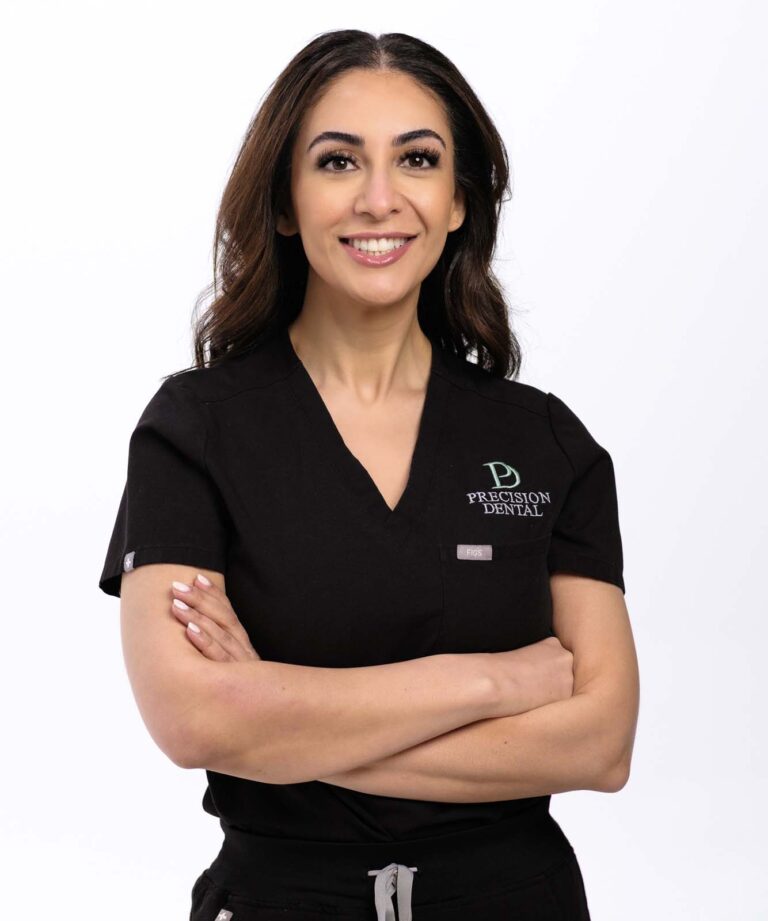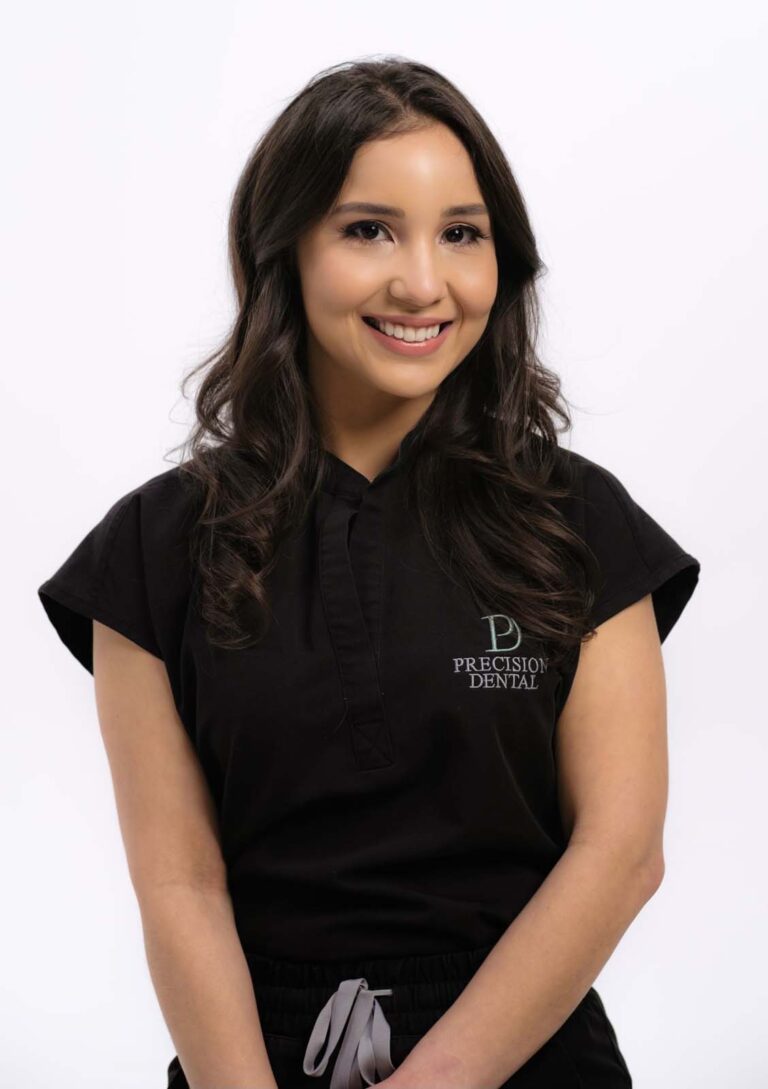Dentures
When you lose most or all your natural teeth, finding a reliable solution that looks and feels natural is essential. At Precision Dental in Bowling Green, KY, we specialize in providing high-quality dentures that restore your smile and functionality, allowing you to eat, speak, and smile confidently.
Dentures in Bowling Green, KY
Dentures are custom-made prosthetic teeth that attach to a gum-colored base, offering a practical solution for tooth loss. At Precision Dental, we offer a range of options, including full dentures for those missing all their teeth and partial dentures for those who still have some healthy teeth remaining. Whether you need dentures for the first time or require a denture repair, our experienced team is here to guide you through the process.
Dentures allow you to smile and eat with confidence, offering a quick and reliable solution for missing teeth. The process of getting dentures typically involves four appointments:
- 1st appointment — We begin with a series of scans, impressions, and photos to provide our lab with the necessary details to start crafting your custom dentures.
- 2nd appointment — We take a final impression and check your bite alignment to ensure a perfect fit.
- 3rd appointment — You’ll try in a wax model of your dentures for final adjustments and approval.
- 4th appointment — We deliver your completed dentures and make any necessary adjustments for comfort and function.
-
What are the different types of dentures available?
At Precision Dental, we offer several types of dentures to meet varying needs. Full dentures are designed for patients who have lost all their teeth in either the upper or lower jaw, providing a complete replacement. Partial dentures, on the other hand, are used when some natural teeth remain, filling in the gaps and preventing the remaining teeth from shifting. Both types can be customized for a precise fit and natural appearance, ensuring you receive a solution that suits your lifestyle and oral health.
-
How long do dentures typically last before needing replacement?
The longevity of your dentures depends on several factors, including the materials used and how well you care for them. On average, dentures can last anywhere from 5 to 10 years before needing replacement. Over time, the fit of your dentures may change due to natural changes in your mouth, such as bone resorption. Regular check-ups at Precision Dental allow us to monitor the condition of your dentures and make any necessary adjustments to ensure continued comfort and functionality.
-
How should I care for my dentures to ensure they last?
Proper care is essential to prolong the life of your dentures. Daily cleaning is necessary to remove food particles and prevent staining. Use a soft-bristle toothbrush and non-abrasive denture cleaner to gently brush all surfaces of your dentures. When not in use, store your dentures in water or a denture-soaking solution to keep them moist and prevent warping. Additionally, regular visits to Precision Dental in Bowling Green, KY, allow us to check for any signs of wear or damage, ensuring your dentures remain in optimal condition.
More Questions?
If you have more questions about dentures, please contact our office, and we will be happy to discuss further.

